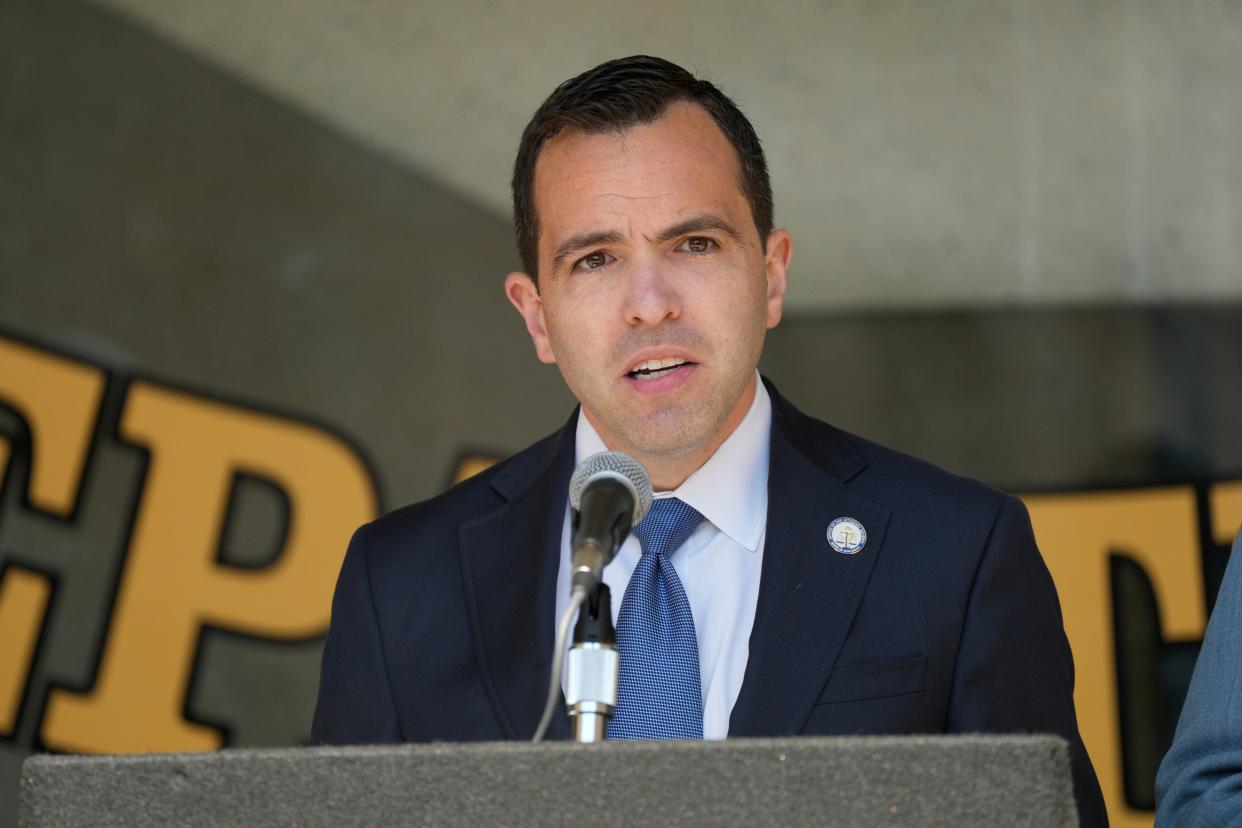NJ issues new guidelines to state's anti-discrimination law, despite Supreme Court ruling

In light of a recent U.S. Supreme Court ruling, the state’s Division on Civil Rights now has new guidelines for enforcing the New Jersey Law Against Discrimination.
On Monday, Attorney General Matthew Platkin announced that although the ruling in the federal 303 Creative LLC v. Elenis case doesn’t affect how the law “applies to the vast majority of businesses and vendors open to the public,” there are a few exemptions.
A business would need to establish three things:
Its creative services are “original” and “customized and tailored” for each customer.
The creation is “expressive” and expresses the creator’s own First Amendment-protected speech.
The public accommodation’s refusal to provide the creative service to a customer is based on the message it conveys, not the customer’s identity or protected characteristic standing alone.
Platkin said in a statement that the “Supreme Court’s misguided decision in 303 Creative does not change a simple fact: New Jersey’s laws remain among the strongest in the nation for protecting people, including members of the LGBTQ+ community, against bias and discrimination.”
The 303 Creative case led the Supreme Court to consider whether the First Amendment barred the application of a Colorado anti-discrimination statute to a web designer who intended to make customized websites for weddings but not to do so for same-sex weddings. The parties agreed that the web designer’s websites were “original” and were “customized and tailored” for each customer, and that the websites the business designed were “expressive” and expressed the designer’s own speech and message regarding her clients’ weddings. Based on those specific facts, the Supreme Court held that the web designer had a First Amendment right not to make her customized website designs for same-sex weddings.
Related: Bill to protect LGBTQ+ people from discrimination reintroduced by Booker
Other Supreme Court rulings
This isn’t the first time in recent years that New Jersey has had to react to decisions made by the nation’s highest court.
The decision in Dobbs v. Jackson Women's Health Organization in June 2022 demonstrated that ensuring that protections exist on the state level may be considered necessary.
In that case, the United States Supreme Court overturned the court’s 1973 decision in Roe v. Wade, which established the constitutional right to an abortion. It left the decision to the discretion of individual states.
Supreme Court Justice Clarence Thomas does not appear to want to stop there. In a concurring opinion he wrote for the Dobbs decision, Thomas suggested that the high court should reconsider opinions protecting same-sex relationships, marriage equality and access to contraceptives.
Thomas said the Supreme Court “should reconsider all of this Court’s substantive due process precedents, including Griswold, Lawrence, and Obergefell … Because any substantive due process decision is ‘demonstrably erroneous.’”
Griswold v. Connecticut was a 1965 decision that granted couples the legal right to contraception, Lawrence v. Texas in 2003 ruled that anti-sodomy laws were unconstitutional, and Obergefell v. Hodges in 2015 guaranteed the right of marriage to same-sex couples.
New Jersey had already taken steps to provide protection for same-sex marriage. Murphy signed a law in January 2022 that codified marriage equality in New Jersey by “providing that all laws concerning marriage and civil union are to be read with gender neutral intent.”
That law brought the state in line with the 2013 decision in Garden State Equality v. Dow and the Supreme Court's 2015 Obergefell decision, and it ensures that the right to same-sex marriage will continue to exist in New Jersey even if these state and federal court precedents were to be overturned.
New Jersey also codified legislation earlier this year allowing people of different races to marry. The legislation notes that the “right to marry or enter into a civil union with a person of any race, including the same or a different race, is a fundamental right and that race shall not be declared to be a prohibiting factor.”
This article originally appeared on NorthJersey.com: NJ anti-discrimination laws in effect amid Supreme Court ruling

